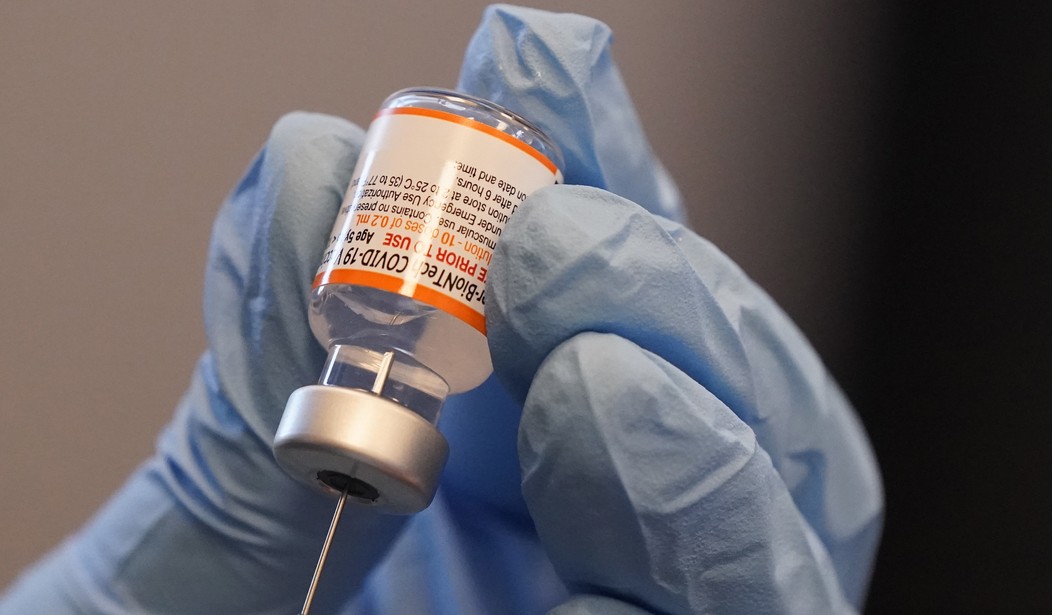This SARS-CoV-2 is one nasty bug. It’s a malevolent entity that’s capable of altering its genetic markers in order to evade human antibodies sent to kill it. This current strain sweeping across the country — the XBB variant — is as different from the original COVID-19 strain from Wuhan as it is from the 2003 SARS virus.
In short, the current strain of the coronavirus doesn’t care if you’ve had COVID-19 before. It doesn’t care how many jabs of vaccine you’ve gotten. It’s a new animal, and our quiver of scientific arrows to defeat it is empty.
Even the monoclonal antibody treatments that have saved uncounted lives appear useless against this XBB variant.
“Such rapid and simultaneous emergence of multiple variants with enormous growth advantages is unprecedented,” a Dec. 19 study in the journal Nature notes. And the reason for the rapid emergence of variants capable of spreading like wildfire around the planet is equally unprecedented.
The SARS-CoV-2 coronavirus is devilishly clever at evading all our attempts to squash it, and our vaccination efforts may be contributing to the creation of new variants.
Bivalent vaccines that target the Wuhan and BA.5 variants (or breakthrough infections with the latter) prompt the immune system to produce antibodies that target viral regions the two strains have in common. In Darwinian terms, mutations that allow the virus to evade common antibodies win out—they make it “fitter.”
XBB has evolved to elude antibodies induced by the vaccines and breakthrough infections. Hence, the Nature study suggests, “current herd immunity and BA.5 vaccine boosters may not efficiently prevent the infection of Omicron convergent variants.”
For those who are relatively young and relatively fit, the evolution of the coronavirus does not present much of a danger. But for senior citizens, those with diabetes or heart disease, COPD, asthma, or an autoimmune disease, it’s almost like we walked into a time machine and traveled back to early 2020.
The difference today is that we know a lot more about the bug than we did at the beginning. We have pharmaceutical remedies that can address the symptoms of COVID-19. Doctors have a battery of treatments that can keep us alive long enough for our bodies’ natural immune systems to kick in.
The biggest problem is that vaccines may very well have contributed to the growth of some of these fast-spreading variants and that the booster shots may actually make people more vulnerable to the newer variants.
Notably, workers who had received more doses were at higher risk of getting sick. Those who received three more doses were 3.4 times as likely to get infected as the unvaccinated, while those who received two were only 2.6 times as likely.
“This is not the only study to find a possible association with more prior vaccine doses and higher risk of COVID-19,” the authors noted. “We still have a lot to learn about protection from COVID-19 vaccination, and in addition to a vaccine’s effectiveness it is important to examine whether multiple vaccine doses given over time may not be having the beneficial effect that is generally assumed.”
Is it just a coincidence that Singapore, the most vaccinated country on earth, is experiencing a massive increase in XBB virus cases? Or that the Northeast in the United States is seeing much higher rates of infection of the XBB variant than the Midwest or South? The Northeast has a much higher vaccination rate than anywhere else in the country.
It’s too early to make a definitive statement that receiving more doses of the vaccine doesn’t protect people against variants of COVID-19 that evade efforts to prevent infection. But for those high-risk patients, it’s still wise to receive at least the basic vaccination against the Wuhan strain. It’s not a silver bullet, but it may very well keep you above ground for a while.










